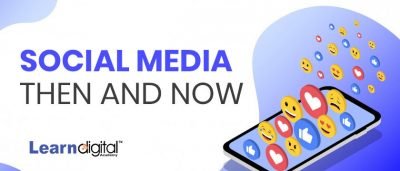
The importance and use of social media are used extensively. Decision making and tourism procedures and management are widely deliberated. The importance of social media is high for tourism competitiveness. Slow development is made by the industry in responding to business opportunities by social media. The online world is rapidly growing and some companies may embrace new technologies due to the pressure to be digital but are not thinking about what it means to the business in a fundamental environment. Theoretically, the increasing significance and attention of social media in tourism was created as the growing number of articles was found over the past years.
There are some challenges of intellectual assets and data control for the development and circulation of social-media-sources-involved, the miracle of social networking and the expansion of social media, web-based and mobile technologies that turn text communications into an active dialog, has been the most dramatic development in the information age over recent years. Resident Journalists, individuals who tweet opinions and comments on the internet for others to see, need to be mindful that they could be subject to claims.
Social media, consumers, tourism, and communication internet and New Consumer Habits in the Tourism Sector One of the habits that are increasingly growing in our society, which was essentially impossible years ago, is purchasing over the Internet and, remarkably, services related to Tourism and Relaxation are those that are the most demanded. Surveys showed that while on the Internet, buyers buy tickets plane, train, boat, bus, some purchase hosting services, and other services related to vacation and spare time activities. the areas related to Tourism and Vacation are no strangers to the Internet, but on the contrary, they are one of the fastest sectors that have adapted their distribution channels and information to users who increasingly use the network.
There is rapid growth and association of Internet use when planning holidays, especially in major tourist source markets. Internet accounts for more amenities for the user in the process of establishing and purchasing your holiday. Tourists can avoid mediators and contact hotels directly through the Internet. Besides, travel agents have also adapted and use the network as a marketing channel through its Web pages. In this sense, it is important to note that, under using the Internet, visitors do not arrive in South Africa without reservation, but the network opens a wide range of facilities for tourists to manage their bookings. The Internet is playing an increasingly important role in the value chain of tourism.
The Internet is a complex platform and consumers, companies, and organizations need to adapt and recycle continuously. The Web model currently in operation has nothing to do with the one that existed five years ago. Five years from now we’ll probably see one that doesn’t have much to do with the present one. We distinguished a change in the Internet model, where the user becomes more noticeable, especially in tourism, where they can conceive and organize their vacations. However, in recent years there have been several tools, such as blogs, YouTube, or different social networks that have a common feature: the socialization and active sharing of users who are part of them. That is, by using these tools users share, choose, and modify the information that most interests them, communicate, socialize, and participate in a conversation that takes place on the Internet. These tools, independently, have developed the existing Internet model, a vertical one, Social Media Applications in Communication, it is important to recognize that social media is first and primary a social platform.
Travel firms need to recognize how their primary customer is using the tools and adapt their marketing to match their consumer needs. In the area of social media, a shift in the communication approach of companies has arisen, away from pushing things out toward inviting consumers to put things into companies to create a fully interactive and mutually beneficial relationship. Since customer appointment is critical to mutual message via social media and because of the lack of communication, anything can affect the eventual success of social media that is used. In the business services field, as solving business problems often requires collaboration and communication among people, social media can help businesses communicate and gather customer input on future approaches and products. Starbucks is a sample where Starbucks customers can suggest ideas: “You know better than anyone else what you want from Starbucks. So tell us. What’s your Starbucks Idea? Innovative or simple – we want to hear it. Share your ideas, tell us what you think of other people’s ideas, and join the discussion. We’re here, and we’re ready to make ideas happen. Let’s get started. By communicating with customers through different social media applications, the purposes or companies could gain insights relating to their competitive advantage and customer perfection.
With social media can not only tourism suppliers achieve a better understanding of what consumers want and how they perceive their companies, customers‟ comments and opinions can also highlight parts of improvement and empower suppliers to protect their brand and images. Impacts on Tourism Culture and Knowledge Social media is changing the global tourism culture. Common themes have arisen from social media research, such as conceptualization of connection and interruption, the impact of technologies on the traditional physical spaces of tourist‟ social communication, and the increasing flexibility between “tourists” and “non-tourists” experiences. The environment of tourism is going to change through the influence of social media. Social media use can also contribute to tourism knowledge creation. Online networking positively donates to information sharing, knowledge creation, and idea generation capabilities of peer-to-peer practical communities. Social media also becomes a useful research tool when conducting academic studies on tourism-related issues. Using social media in tourism education is also an emerging topic, because the main users of social media on Facebook, are, for example, students. Intellectual Property and Data Control There are some challenges of intellectual property and data control for the development and dissemination of social media-sources-involved.
The phenomenon of social networking and the development of social media has been the most dramatic development in the information age over recent years. Employees should thus be educated in their duties to protect information in whatever media. It is suggested that this is protected in letters of employment and induction training of all new employees involved by counselors. It is also necessary that the terms governing the employment of existing employees and the education of existing employees are also reviewed and addressed accordingly. To optimize the use of social media it must be used responsibly and adhere to the professional obligations mandated by relevant regulatory bodies and the ethics that legality encourages and expects from its employees, users of its information, and its information systems. The question we should be raising is “What are the legal implications from a professional perspective when using social media? “Social media is neither great nor useless, but how it is used is its meaning. Furthermore, it does not turn responsible and professional actions into anything unethical or immoral.
The law on social media is the law that regulates any conversation that takes place over. If a person/ company publishes data” including comments on Tweets, Retweets, or even the presenting of comments on one’s Facebook page” you are subject to the same laws that would apply to the traditional media. This means that your content on your Facebook Profile – including your Tweets and Re-Tweets – is subject to criminal law. Freedom of presence is a fundamental right but it is not limitless as far as freedom of expression on the internet is disturbed. If your speech oversteps on the rights of another, disturbs copyright, or constitutes hate speech, then your freedom is legally limited.
Citizen Journalists need to be aware that they could be subject to lawsuits. Whether an individual ‘citizen journalist’ or ‘traditional’ journalist publishes information that could be deemed insulting to either an individual, company or brand, it seems that one could certainly be liable for an offence for unsupported negative comments. Conclusion Competitiveness in the field of tourism research can be defined as “the ability of a journey’s end or business to create and participate value-added products that enable local resources to sustain and maintain its market position over its competitors”. There is a new paradigm of competitiveness. It is believed that innovation is a key factor for business success and, eventually, for the growth of national economies. Traditionally, there was the idea that the tourism sector, as the service sector was a sector that developed little advanced activity and applied innovations produced by the manufacturing sector. However, in recent years there is increasing evidence that the service sector plays an important role in the use and generation of innovations, but innovation in this sector has specific characteristics.
The literature review confirms the importance of clusters in economic development, contributing positively to the innovation process, facilitating relationships with other companies and institutions to better meet consumer needs, channeling knowledge, and information. Today it is universally approved that information Technology has revolutionized communications and tourism, among others. The role of the user in Tourism 2.0 is clear, through interaction and direct contribution to the environment. There are already many social networks aimed at sharing experiences, photos, and rating the quality of services received in different areas of the tourism industry. Research into social media in tourism might find new interests in four main directions: community engagement and communication, complete marketing strategies, differentiated purpose management, and the legal and ethical issues arising from using social media in tourism.
Want to become a social media marketer? Go and check out our social media marketing course syllabus and fee structure. We have the best Social media courses in Bangalore at affordable fees.


